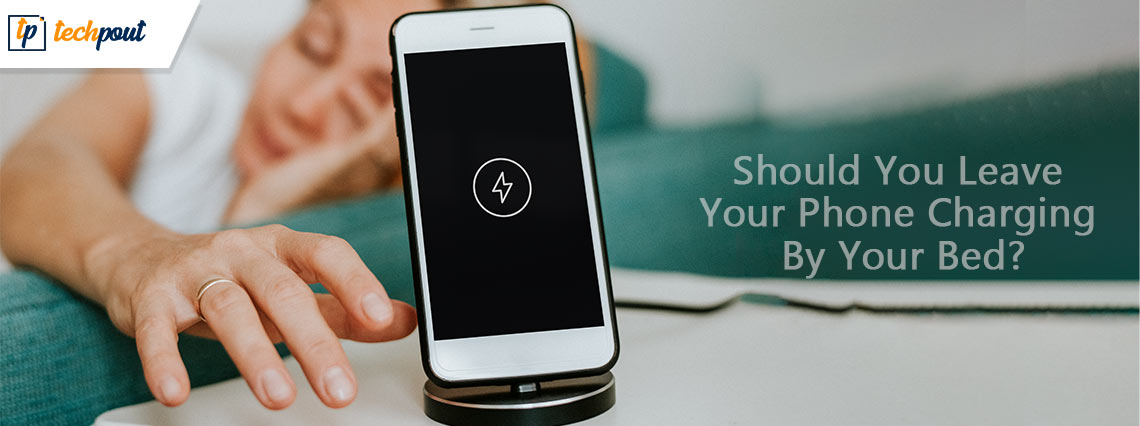Should You Leave Your Phone Charging By Your Bed

In today’s world, everyone is glued to their phones. This is true whether we like it or not. Even those who want to limit their screen time feel uneasy when their phone is not nearby. For this reason, most people sleep with their phone charging by the bed.
Having your phone by your bed may be useful. You will wake up to answer any urgent calls. You can use your phone as an alarm. It is also less likely to be stolen without you being woken out of your sleep.
Honestly, none of these are insurmountable. If you have renters insurance, it should also cover your phone for theft. Your phone alarm can wake you by going off incessantly from across the room. The same is true of urgent phone calls (which are exceedingly rare).
But is it a bad thing to have your phone charging by your bed overnight? Let’s explore some of the reasons people give to avoid this practice.
Radiation
This is a concern that was trotted out fairly often in the early days of mobile phones. Phones emit radiation and people were worried that they could cause health issues if they were left too near your head. Some people even refused to hold their phones to their ears to have a conversation.
But this has been thoroughly debunked. Phones emit tiny amounts of radiation, as does everything else, including your body. Sleeping with your phone next to your bed is not going to cause any damage this way.
Also Read: How to Make Phone Calls with Alexa
Overheating
Radiation may not be an issue, but what about overheating? You may have heard that charging your phone throughout the night is never a good idea as it may overheat. In this case, there is some truth to the concern. Phone batteries do heat up when the phone is being charged.
However, phones today are designed to stop charging when the battery is fully charged. Some even have an option to use ‘optimized charging’, which preserves the battery by leaving it somewhat uncharged until just before it’s time to wake up. Charging your phone next to your bed is not going to cause any burns or explosions.
That being said, if you leave your phone charging on your bed, there is some danger. If it gets under the covers or you place it under your pillow, the air vents are unable to discharge the heat. Your phone may leave scorch marks – or worse – on your bedding or body.
Blue Light
You may have heard about phones emitting blue light. This is light with a specific wavelength perceived as blue. While myths that it will harm your eyes have been debunked, the evidence does indicate that it can play havoc with your circadian rhythm.
Your circadian rhythm is the internal clock that tells you when it is time to sleep and when it is time to wake. Blue light confuses your brain into thinking it is still daytime, suppressing melatonin and keeping you awake. It is therefore a good idea to stop using your phone an hour or more before you go to bed.
Charging your phone by your bed does not necessarily lead to issues from blue light. However, you are a lot more likely to pick up your phone and scroll through social media while in bed if it is right there. It may also disrupt your sleep if you wake up in the middle of the night and you pick up your phone to look at the time (or messages that have arrived).
Also Read: How to Enable WiFi Calling
This is the main reason not to keep your phone charging by your bed at night. It is very difficult to resist the allure caused by your phone’s presence. Instead of getting the sleep your body badly needs, you end up spending that time looking at your phone and compromising the quality of the sleep you do get.
Ultimately, charging your phone by your bed is not dangerous, but it is not necessarily a good idea.


